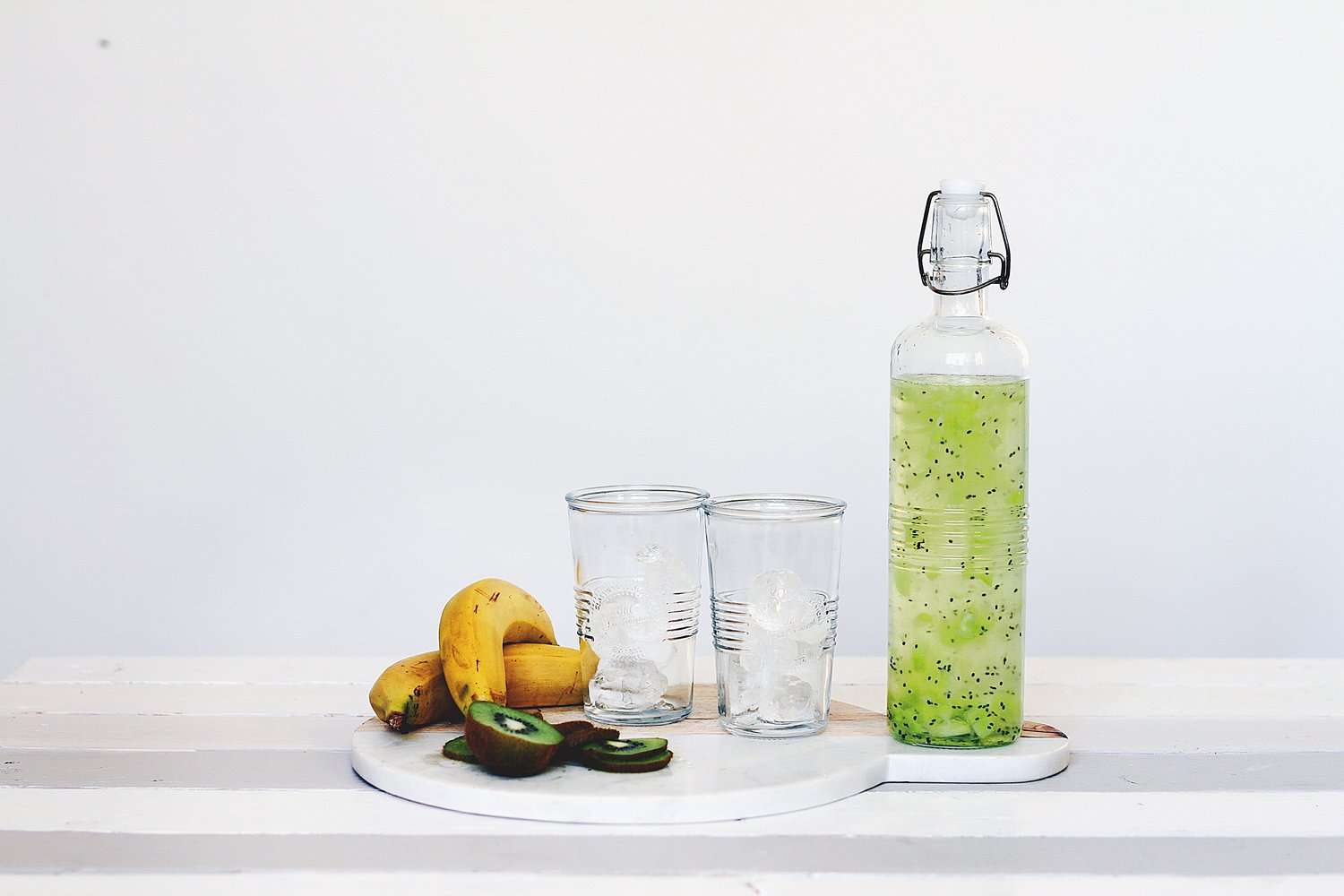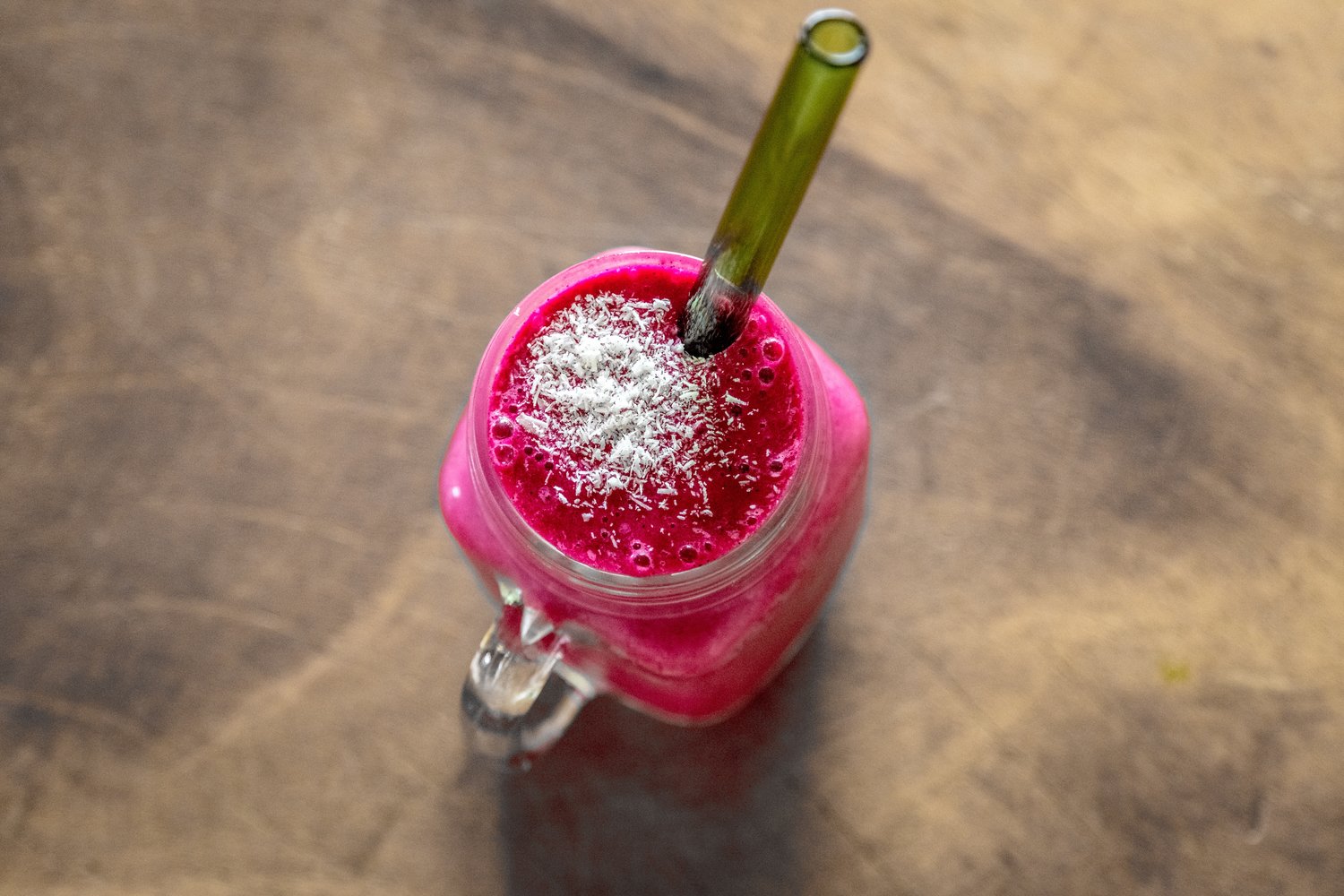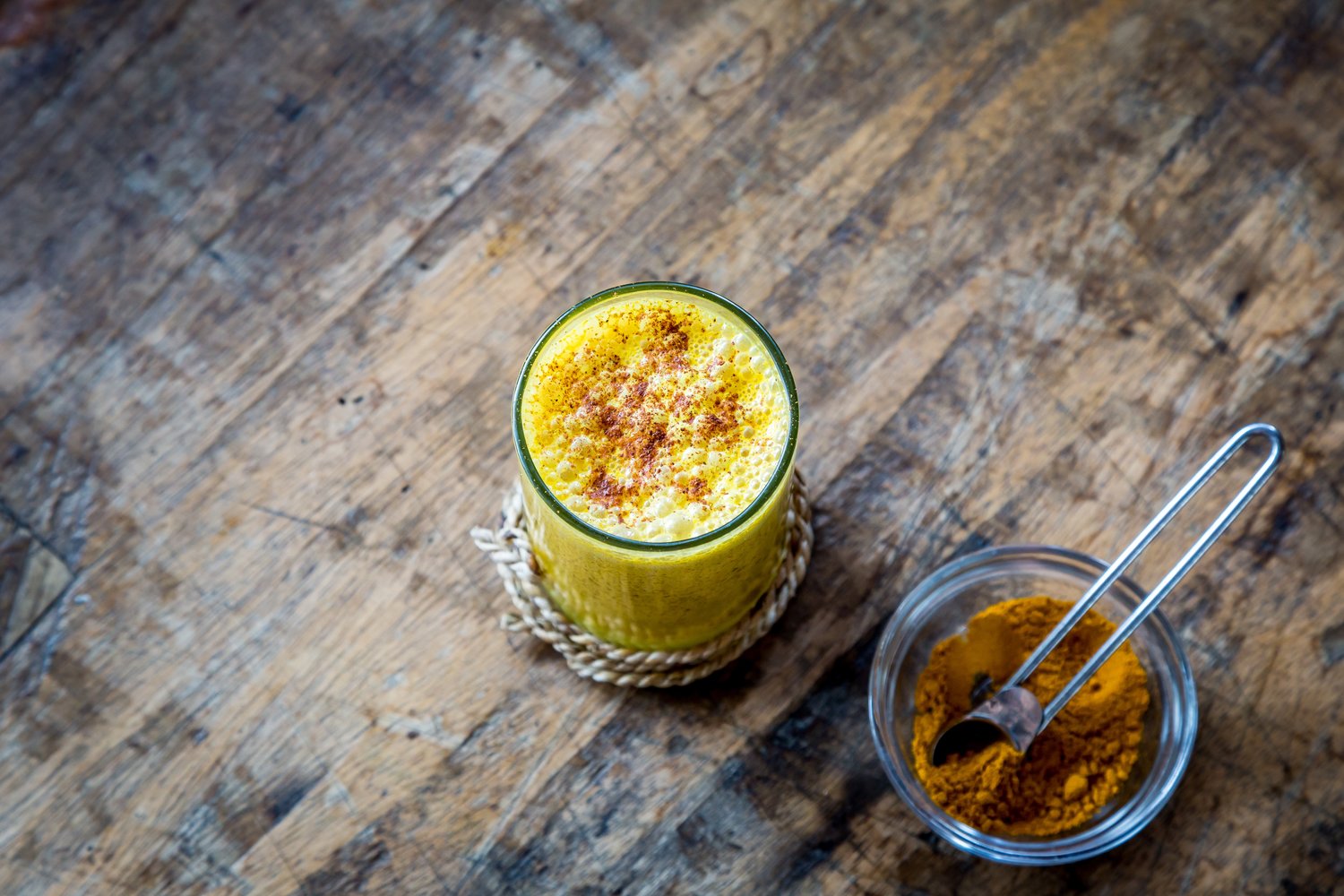Let me preface this by saying that, if there’s a smoothie out there you can think of, chances are I’ve tried it. I’m a smoothie fiend. I would choose smoothies over any breakfast food, any day. If it were possible (and healthy) to subsist on smoothies alone, I would. But as charming as it sounds to be sipping on smoothies all day, every day, it’s not really conducive to a healthy and balanced diet.
A previous version of this article was published on JacalynBeales.com
When I mention “smoothies,” I’m not talking about juicing. Take it from someone whose been there and done that with juice cleanses (yours truly): they’re a hoax. Not only have I tried just about every on-trend juicing cleanse out there–including some of Gwyneth Paltrow’s questionable juicing tips–I’ve also purchased pre-made juice cleanses in an attempt to decipher just what the hell all the hype is about. At one point, a seven-day juice cleanse had me so on edge that my then-boyfriend and I avoided each other for a week for fear that I might rip his head off out of hunger/exasperation/fatigue. They say juicing is supposed to make you a healthier individual, but all it did was turn me into a perpetually hangry monster who would scarf down pasta, chips, and other junk food the minute my cleanse was over. Think of it like The Purge, only instead of people being murdered, bowls of carbonara and slices of pizza were being brutally attacked by me.

Juicing has been praised by celebrities, celebrity nutritionists, and Instagram-famous people who work out too many times a day as the be-all-end-all cure to virtually every health issue. Want to shed that extra 10-20 lbs in just two short weeks? Try a juice cleanse. Want to improve your heart health whilst eliminating migraines and fatigue from your everyday life? Drink 8 liters of beet juice every morning! Saying it aloud or reading it back to yourself makes it sound utterly ridiculous: how can drinking liquid help you lose weight, get in shape, or change your health profile completely? The answer is that it can’t, but because celebrities or social-media-famous trainers tell us it can, we buy into it; we’ve been conditioned to believe that if something as expensive yet as non-beneficial as a juice cleanse can help an actress or musician shed weight and get toned, then it must be the miracle solution we’ve been looking for regarding our own issues or health concerns.
Yeah…not so much.
A 2015 Salon article by Timothy Caulfield gained quite a bit of attention when it detailed (as an excerpt from his book on wellness) just how wrong celebrities like Gwyn Pal are about juice cleanses and other fads or trends that we fall for simply because an actress endorses them. The article can be summed up quite succinctly by saying that even Paltrow’s juice cleanses are garbage and do nothing to improve health or rectify health conditions. If you do a simple Google search on why juice cleanses are bad for you, you’ll be hit with a veritable onslaught of article after article detailing just why, exactly, juice cleanses suck and reasons for avoiding them completely. And yet, we continue to participate in such cleanses because, simply put, we can’t help ourselves.

But what about smoothies?
Smoothies aren’t anything new; people were blending fruit and sugar together long before they jumped on the bandwagon of reducing 3 lbs of carrots into 2 cups of orange liquid. Just like juicing, however, we’ve been led to believe that consuming smoothies is good for our health and can aid us in our individual journeys to feel, look, and be better. Social media enterprises like Simple Green Smoothies are perpetrators of this trend, seeking to inform people that they can “reset” and revamp their lifestyle choices with smoothie cleanses and the like. Though I can appreciate the focus on adding greens and nutrient-dense foods to smoothies, something about cleansing my body with nothing but blended fruits and vegetables 3-4 times a day screams “gimmick.”
What many of us don’t realize is just how high in sugar, fat and sodium smoothies can be–even the “green” ones. It sure does sound romantic to think that, by drinking three smoothies every day packed with spinach, ginger, almond milk, honey, chia seeds, hemp hearts, mango, agave nectar, cocoa powder and whatever else you have in your kitchen sink, we can “take back” our good health and become smiley, happy hippies glad to subsist on blended food, but such is not the case. People have long purported the “dangers” of falling for the smoothie fad, in particular, the high amounts of sugar and fat that can be housed in one 12-24 oz smoothie–a pretty large amount of liquid food if you consider just how much almond milk, juice, and sweetener it would take to make those bad boys taste less like kale and more like a green milkshake.
You can also easily gain weight from smoothies, adding more sugar, fat, and carbs to your diet that may prove to be totally unnecessary. But if they’re not that great for us, why do we continue to drink them?

My own personal theory as to why we simply can’t help but fall for these trends is because of social media and the fame culture surrounding health fads. If we see on Instagram, for instance, that one of our favorite models, actresses, trainer,s or would-be nutritionists with thousands of followers is pushing a new smoothie recipe, a protein powder, a green smoothie mix, or other “health” product, typically one or two of us is going to buy into it. We see these beautiful, notorious individuals being “healthier” and “better” versions of themselves all thanks to a few kale-and-chia powders or smoothie cleanses and we immediately assume we can change if we follow this or that person’s regimen. Never mind that most of these infamous celebrities–be them Instagram stars or no–have personal trainers or chefs, work out every single day, often have no “choice” but to watch their figure, and probably lead a different life “off camera” than we see on social media. The chances of a smoothie or juice cleanse quite literally changing your life without making any other lifestyle changes for a healthier you, are slim.
I’m no expert, so I can’t tell you to give up smoothies altogether, to go hit the gym and to step away from junk food. Hell, even I drink one smoothie every day for breakfast, mostly because I do not wake up hungry in the mornings but am aware that breakfast is an important meal, and a smoothie is all I can really stomach at 6:30 am each day. But my smoothies, though perhaps glamorous looking on my Instagram, don’t taste all that delicious. I use plain, unsweetened almond milk, a blend of raw superfoods, some sort of greens (like spinach or kale), throw in a banana and drink. Occasionally, my smoothie might be a “treat,” such as when friends stay over and I make chocolate + pb and banana smoothies, which consist of the same almond milk, a tsp of peanut butter, some raw cacao powder, a frozen banana and a superfood blend of chia seeds, hemp hearts and other healthy-tasting stuff.

But I’ve become steadily more aware that, if I want to incorporate smoothies into my everyday diet, they need to be healthy ones. You can still consume juices and smoothies (for good-tasting *and* healthy ones, try these), but by no means do I believe they should replace every meal you have, and just like anything else, it’s best to avoid loading them up with sugar and fat, even wholesome-sounding ones.
What do you put in your smoothies?
Also by Jacalyn: Why Almond Milk Isn’t Actually Good for Your (We’re Sad, Too)
Related: How to Make the Best Low-Sugar Green Juice Recipe
6 Ways to Get the Most Out of Your Green Smoothie
Get more like this—Subscribe to our daily inspirational newsletter for exclusive content!
__
Photos: Unsplash




